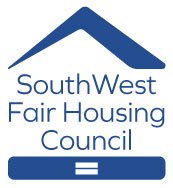Navigating Criminal Background Checks: Bridging the Gap Between Policy and Fair Housing
Promoting fair housing involves many facets, one of which is the judicious application of criminal background checks for prospective residents to ensure that they are equitable and just. Over a year ago, the U.S. Department of Housing and Urban Development (HUD) released a memo outlining guidance for housing providers regarding this critical issue.
This memorandum served to review the key principles and accentuate the necessity for Fair Housing and Equal Opportunity (FHEO) investigators, Fair Housing Initiatives Program grantees (FHIPs), and Fair Housing Assistance Program agencies (FHAPs) to be well-versed in how criminal background screening policies and practices might contravene the Fair Housing Act (the "Act"). It furnished tips for conducting thorough investigations pertaining to criminal background screening, alongside recommending some best practices that FHIP and FHAP staff could suggest to housing providers who might harbor concerns regarding potential liabilities tied to the utilization of criminal background screening information on applicants or tenants.
Southwest Fair Housing Council (SWFHC) took the reins post the issuance of this memo, rigorously evaluating the implementation of these guidelines across Arizona. Through a blend of education and advocacy, we have been working diligently to enlighten housing providers about these stipulations, striving to promulgate fair practices across the board. Our efforts are bent on ensuring that the spirit and the letter of the guidelines are upheld. Southwest Fair Housing Council (SWFHC) has since been proactive in evaluating how these guidelines are being implemented across Arizona, educating housing providers, and advocating for fair practices.
Exploring the Landscape:
Our investigations into the criminal background review practices among housing providers have revealed a persistent issue. Despite outreach and education efforts, many providers continue to uphold overly restrictive standards when assessing the criminal histories of prospective residents.
The Disproportionate Impact:
Such restrictive policies tend to adversely affect people of color, families with children, and persons with disabilities disproportionately. This not only stands as a barrier to secure housing but also hampers the individuals' ability to seek employment and establish a stable livelihood, which are crucial steps towards societal reintegration.
Advocacy and Education:
SWFHC has incorporated findings from these investigations into statewide fair housing presentations, aiming to enlighten both housing providers and the public on the ramifications of stringent criminal background check policies. Through these efforts, we aspire to foster a more informed and equitable housing environment.
The Road Ahead:
As we continue to delve into this issue, our mission remains clear - to alleviate the barriers posed by unjust criminal background review practices. By working alongside housing providers and engaging with the community, we aim to advance a fair housing landscape that upholds the rights and dignities of all prospective residents, including those with criminal backgrounds. This ongoing endeavor reflects SWFHC's commitment to tackling complex issues that intersect with fair housing rights. Through sustained advocacy and education, we envision an Arizona housing landscape that is inclusive, just, and supportive of every individual's quest for stability and a place to call home.

